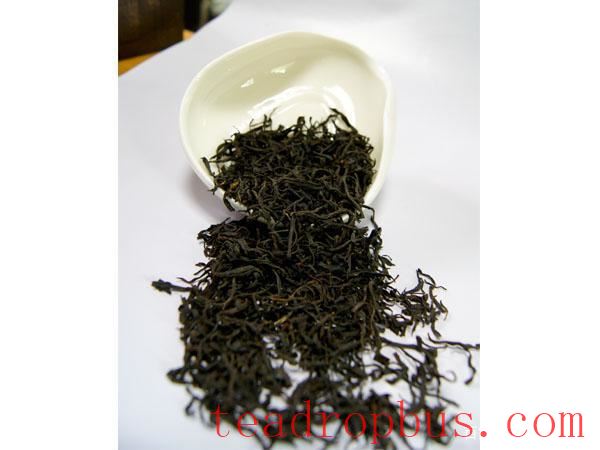This time we talk about the Black Tea of Lapsang souchong from Wuyi Mountain. Tongmu Village is the birthplace of this Tea, considered the progenitor worldwide. The author has spent nine years in Wuyi Mountain studying Wuyi tea. These years have been very fruitful!
Lapsang Souchong (lapsang sauchong) and artificial small-leaf varieties are collectively known as Small-Leaf Black Tea. It was first created in the Wuyi Mountain region of Fujian Province. It is the world's oldest black tea, also known as the progenitor of black teas, with a history dating back over 400 years. It was developed by the tea farmers of Wuyi Mountain during the mid-Ming Dynasty. Later, Gongfu black tea was developed based on Lapsang Souchong. Historically, Xingcun served as the distribution center for this tea, hence it was also called Xingcun Small-Leaf. After the Opium War, with the invasion of imperialism and fierce competition in the international and domestic tea markets, there emerged a distinction between “authentic” mountain tea and “non-authentic” tea, with “authentic” implying orthodoxy, thus giving rise to the name.
The term “Lapsang Souchong” black tea was initially known in Europe as WUYI BOHEA; “authentic” refers to Tongmu and the surrounding areas at the same altitude, using the same traditional production method, resulting in a similar quality and unique Osmanthus flavor, all collectively referred to as “Lapsang Souchong.”
Lapsang Souchong black tea flourished in the 17th century. According to Yux's “Chronology of Tea,” in 1705, black tea (BLACK TEA) was priced at thirty shillings. Biographer Mrs. Mary R. Lanney records that the price of black tea (BOHEA) at the time was twenty to thirty shillings. The taste of Wuyi (BOHEA) Lapsang Souchong black tea is rich and distinctive, making it highly popular in the international market, selling well in countries such as Britain, the Netherlands, and France.
In 2005, the Jiang family developed Jin Junmei based on the traditional process of small-leaf black tea, which further stimulated the development of the entire Wuyi black tea industry and quickly gained popularity domestically.
